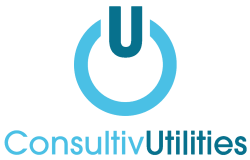The cost and complexity of managing business energy is only increasing. From unpredictable wholesale markets to growing pressure for sustainability and compliance with new environmental standards, today’s business owners face more decisions than ever when choosing an energy contract.
Whether you’re running a local retail shop or managing a growing manufacturing facility, choosing the right energy contract is no longer just about cost. It’s about strategy and alignment with your business’s future goals.
By understanding the various aspects surrounding your energy contract, you can make smart and informed decisions which are in your business’ best interest.
Understanding your energy usage
Before you can choose a contract, you need clear and accurate usage data.
Tools like smart meters and automated meter reading provide real-time consumption insights, helping you spot inefficiency and plan your energy usage better. They also allow energy supplier to provide a more accurate quote based on your actual usage patterns.
Understanding business energy contracts: Fixed vs. Flexible
There are two primary types of energy contracts to consider – each with pros and cons depending on your business model, size, and appetite for risk.
Fixed
Fixed contracts lock in a unit price (kWh) and standing charge for the entire duration of the agreement.
Pros
- Budget certainty – predict and control your energy spend.
- Shielded from wholesale price spikes.
- Often better for small businesses or those with tight operating margins.
Cons
- No benefit if market prices drop.
- An exit fee if you decide to leave early.
- Risk of rolling into expensive out-of-contract rates if you miss renewal deadlines.
Flexible
Flexible energy contracts adjust according to market trends. If wholesale prices drop, so can your cost. But when prices rise, so can your bills.
Pros
- Potential for lower costs if your purchases are timed well when wholesale market prices are lower.
- More agile and suitable for businesses with in-house energy expertise or support from a trusted energy consultancy.
- Cons
- Exposure to market volatility.
- Harder to budget if you do not have the skills or tools in-house.
- Requires active monitoring and risk management.
What affects your energy contract rates?
You will see slight differences with the rates offered by suppliers. Both internal and external factors influence these rates. Some of the internal factors include:
- Current annual energy use.
- Business size.
- Business location.
- Times your business uses the most energy.
- Non-commodity charges.
External factors influence rates in business energy contracts such as an increase or decrease in wholesale prices. Wholesale prices are further influenced by factors like supply and demand and global geopolitics.
Use an energy broker
Finding the time to contact energy providers to get multiple quotes might not even be possible when you’ve got a business to run. That’s where energy brokers can offer real value.
At Consultiv we act as the middleman between your business and energy suppliers. Our role buying energy for your business has evolved beyond just “finding a deal”. We can support with strategic energy support, risk management, and sustainability insights.
Using a broker is ideal if:
- You lack in-house energy expertise.
- You want advice on the most suitable contract for your business.
- You want to ensure you have compared multiple quotes on a like-for-like basis.
- You need ongoing support to manage your energy needs.
- You need help with energy compliance.
- You want to streamline multi-site energy contracts.
Do any of the above resonate with you? Feel free to reach out to us today for support on choosing the right energy contract.
Categories:

